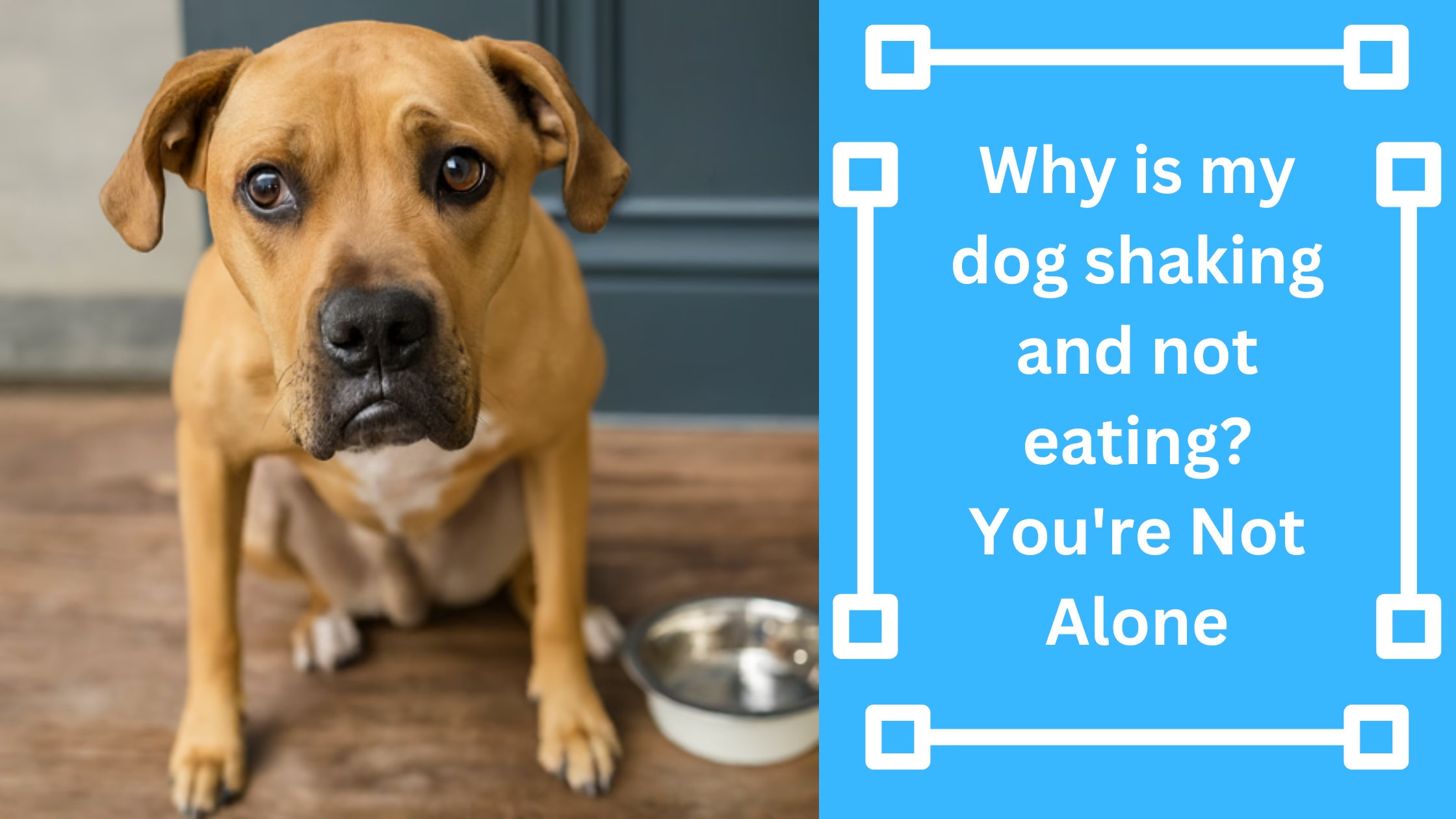Seeing your furry friend shivering and refusing food can be a terrifying experience. Why is my dog shaking and not eating? This question plagues countless pet parents every year. The good news is, there are many reasons why this might be happening, and some are less concerning than others.
This guide will help you understand the potential causes of shaking and loss of appetite in dogs, when to seek veterinary attention, and how to monitor your pup at home.
Why Is My Dog Shaking and Not Eating?

There’s a range of reasons why your dog might be experiencing tremors and refusing food. Let’s explore some of the most common causes:
Less Concerning:
- Cold Weather: If your dog has been outside in chilly temperatures, shivering is a natural response to stay warm.
- Excitement or Nervousness: Some dogs tremble due to excitement during playtime or nervousness in new situations.
- Seeking Attention: Clever pups might shake for a reaction, hoping for a treat or some extra petting.
More Serious:
- Pain or Discomfort: Shaking can be a sign of pain caused by injuries, illness, or dental problems.
- Upset Stomach: Nausea or digestive issues can lead to loss of appetite and tremors.
- Toxin Ingestion: If your dog has ingested something poisonous, it could cause tremors and loss of appetite.
- Infections: Bacterial, viral, or parasitic infections can make your dog feel unwell and lead to shaking and loss of appetite.
- Underlying Medical Conditions: Conditions like kidney disease, liver disease, or neurological disorders can manifest as tremors and loss of appetite.
- Low Blood Sugar (Hypoglycemia): This can happen in puppies, small dogs, or dogs with certain medical conditions. Signs include shaking, weakness, confusion, and sometimes seizures.
Other possible causes:
- Age-related issues: Shaking and loss of appetite can sometimes be seen in senior dogs. Consult your vet to rule out other causes.
- Travel sickness: Motion sickness can cause nausea and tremors in some dogs. Talk to your vet if travel anxiety is a concern.
- Dietary issues: Food allergies or sensitivities can lead to digestive upset and tremors. Consult your vet about potential food allergies.
- Parasites: Heavy parasite loads can make dogs feel unwell and cause loss of appetite or tremors. Regular deworming is essential.
When to See a Vet Immediately
If your dog is exhibiting any of these following signs alongside shaking and not eating, rush them to the vet immediately:
- Vomiting, diarrhea, or excessive lethargy
- Difficulty breathing or pale gums
- Persistent shaking or tremors lasting for several hours
- Abnormal behavior like confusion or disorientation
Remember, when in doubt, always consult a veterinarian. They can diagnose the underlying cause and recommend the best course of treatment for your dog.
Calming Tips While Monitoring Your Dog
While waiting for your vet appointment, you can monitor your dog’s condition at home. Here are some tips:
- Observe their behavior: Watch for changes in activity level, posture, or vocalizations.
- Check for additional symptoms: Look for signs of vomiting, diarrhea, or unusual discharge.
- Monitor water intake: Dehydration can worsen the situation. Make sure your dog has access to fresh water.
Preventative Measures You Can Take
Here are some ways to help prevent shaking and loss of appetite in your dog:
- Maintain a healthy diet and regular exercise: A balanced diet and proper exercise keep your dog healthy and happy.
- Keep toxic substances out of reach: Secure medications, household chemicals, and plants that could be poisonous to dogs.
- Provide a safe and comfortable environment: Minimize stress factors in your dog’s environment.
Call to Action and Positive Outlook
Early intervention is key! By seeking veterinary guidance and addressing the underlying cause promptly, your dog has a good chance of making a full recovery.
Also Read: Can Dogs Eat Celery Sticks Raw? A Comprehensive Guide
Also Read: Can Dogs Eat Lanzones Without Seeds? – Best Guide
Conclusion
Understanding why your dog is shaking and not eating is crucial for their well-being.
Remember, while some causes are less concerning, others require immediate veterinary attention.
By monitoring your dog, taking preventative measures, and seeking professional help when necessary, you can ensure your furry friend gets the care they need to stay healthy and happy.
Sources:







